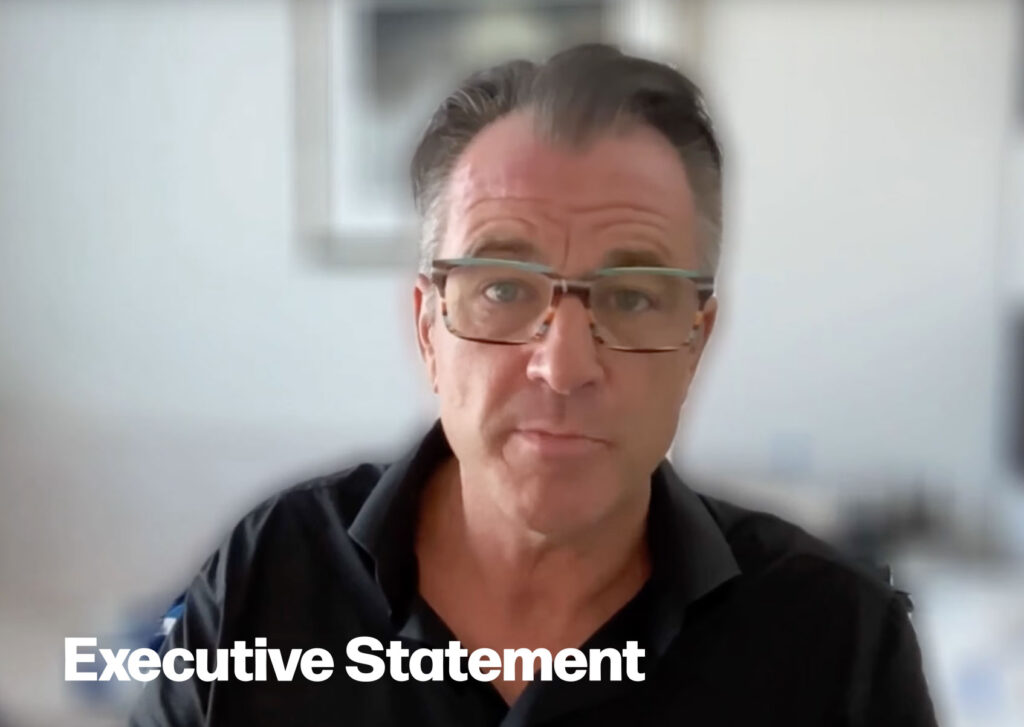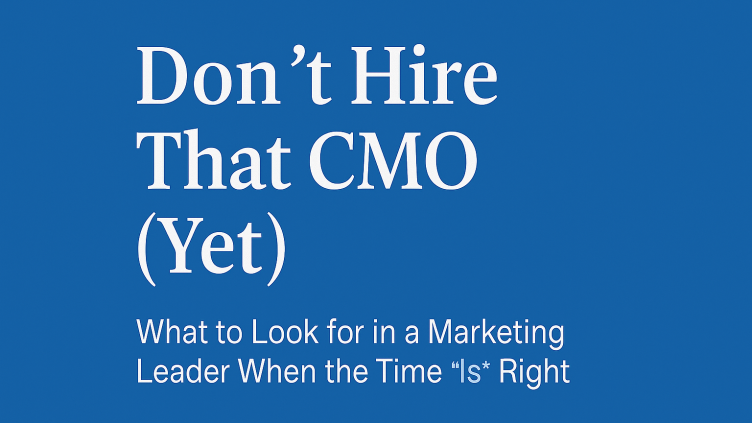Building successful sales strategies isn’t rocket science, but most companies get it wrong anyway.
There’s a moment in every startup’s journey when the founder turns to the team and says:
“We need a real marketing leader.”
It’s an understandable impulse. Growth is flattening. Sales cycles are inconsistent. There’s pressure from the board to “build the brand.” Everyone wants a silver bullet — and it seems like the right CMO could be it.
But here’s the reality: hiring a full-time CMO or VP of Marketing too early is one of the most expensive missteps a tech startup can make. And worse — it can slow your momentum more than it helps.
At The Artesian Network, we’ve helped dozens of venture-backed startups scale from early traction to repeatable revenue. Our strong stance is this:
Don’t hire a full-time marketing executive until after you’ve raised your Series B.
Why? Because until that point, your company likely hasn’t yet achieved a repeatable, predictable revenue model — the single most important signal that it’s time to scale. That means the core go-to-market playbook still needs to be tested, built, and proven.
In other words, you haven’t validated your Marketing and Sales MVP — a concept I explain in detail in this post:
🔗 Build It. Test It. Prove It.
Why Full-Time Marketing Hires Often Fail Pre-Scale
The most common mistake we see? Startups up-title a smart, hardworking marketer from a larger tech company into a VP or CMO role.
They’ve got pedigree. A strong resume. They know the jargon and have seen big growth in action.
But two structural problems usually arise:
1. They Lack Startup Pattern Recognition
Big company success doesn’t always translate to early-stage scrappiness. In fact, it often gets in the way.
Pattern recognition doesn’t come from theory. It comes from repetition — having lived through multiple GTM experiments across multiple startups. From knowing which early signals matter and which are just noise.
A great early-stage marketing leader has failed — and learned — enough to know when to push, when to pause, and how to prioritize when every dollar matters.
2. They Think Like Operators, Not Scientists
Startups don’t need marketers who optimize what already works. They need marketers who discover what works in the first place.
That requires a scientific mindset — grounded in testing, learning, and iterating. Unfortunately, most marketers from big orgs are trained for efficiency, not efficacy. Their world is about incremental lift — not building from zero.
What early-stage companies need are experimentalists. Systems thinkers. Growth hackers. Not just brand architects or content producers.
3. Speed Is Your Only Advantage
Your only sustainable competitive advantage as a startup is speed — speed to market, speed to learn, speed to pivot.
But building a full in-house team? It takes months — time most startups don’t have. And capital you probably can’t afford to burn.
It can take 2–4 months to recruit a CMO. Then that CMO has to onboard and spend another 3–6 months building a team: demand gen, content, product marketing, brand, and ops.
A seasoned fractional marketing team plugs in by week one.
They bring:
- An integrated team of specialists
- Proven GTM systems
- Best practices from dozens of startups
- A cost profile that’s far more startup-friendly
This isn’t just about saving money — it’s about accelerating outcomes.
So When Should You Hire a CMO or VP of Marketing?
Once you’ve hit product-market fit and early signals of revenue repeatability, that’s when scale-ready marketing becomes a priority.
That’s when you shift from figuring it out to building the engine.
But who you hire — and how you evaluate them — matters deeply.
What to Look for in Your First Full-Time Marketing Leader
✅ Breadth Over Depth
Look for generalists who have worked across multiple marketing disciplines — demand gen, product marketing, brand, content, analytics. At this stage, you need someone who can both strategize and execute.
Interview Tip: Ask how they’ve led across multiple functions. You’re looking for systems thinkers who’ve rolled up their sleeves.
✅ Systems Builder
They must know how to build and run demand funnels, attribution models, testing protocols, and messaging frameworks — from scratch.
Interview Tip: Ask them to describe a demand engine they built. What worked? What didn’t?
✅ GTM Pattern Recognition
They should have lived through several startup GTM motions — not just one. Bonus points for failure stories with clear lessons learned.
Interview Tip: What’s the biggest GTM mistake they’ve made? What did it teach them?
✅ Comfort with Ambiguity
The ground is always shifting in early-stage companies. You need someone who thrives in chaos and doesn’t wait for perfect data.
Interview Tip: How have they handled shifting ICPs, pricing models, or sales feedback loops?
✅ Obsession with Learning
Great startup marketers are curious and adaptable. They experiment constantly and seek new insight like oxygen.
Interview Tip: What’s the last thing they taught themselves — and why?
✅ Cultural Fit > Resume
Finally, make sure they match the mission. You don’t need a resume — you need a teammate. Someone who can align with product, sales, and leadership and earn trust quickly.
Interview Tip: Invite them to join a sales huddle or standup. Observe how they engage.
Final Thought
Startup success hinges on timing and fit — nowhere more than in marketing leadership.
Hire too early, and you risk:
- Burning capital
- Scaling the wrong message
- Misfiring on product-market fit
But hire the right person at the right time?
You unlock scale. Create alignment. Build momentum.
Until then?
Work with experienced fractional talent who know the early-stage grind — and can help you find that repeatable, predictable path to growth.
At The Artesian Network, we’ve been the interim marketing engine for dozens of early-stage companies. Over 50% of our clients have gone on to successful exits, including IPOs and acquisitions.
Let’s get you there — FASTER.

